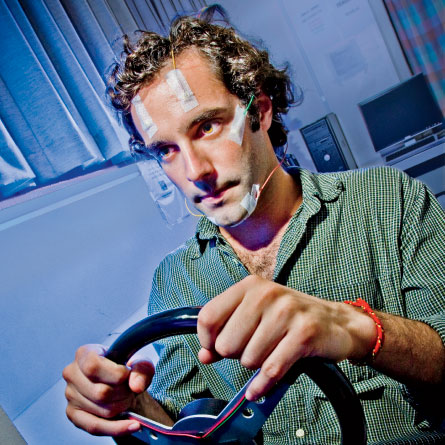
© TessarloBlurred lines between asleep and awake
Earlier this year, a puzzling report appeared in the journal
Sleep Medicine. It described two Italian people who never truly slept. They might lie down and close their eyes, but read-outs of brain activity showed none of the normal patterns associated with sleep. Their behaviour was pretty odd, too. Though largely unaware of their surroundings during these rest periods, they would walk around, yell, tremble violently and their hearts would race. The remainder of the time they were conscious and aware but prone to powerful, dream-like hallucinations.
Both had been diagnosed with a neurodegenerative disorder called multiple system atrophy. According to the report's authors, Roberto Vetrugno and colleagues from the University of Bologna, Italy, the disease had damaged the pair's brains to such an extent that they had entered status dissociatus, a kind of twilight zone in which the boundaries between sleep and wakefulness completely break down (
Sleep Medicine, vol 10, p 247).
That this can happen contradicts the way we usually think about sleep, but it came as no surprise to Mark Mahowald, medical director of the Minnesota Regional Sleep Disorders Center in Minneapolis, who has long contested the dogma that sleep and wakefulness are discrete and distinct states. "There is now overwhelming evidence that the primary states of being are not mutually exclusive," he says. The blurring of sleep and wakefulness is very clear in status dissociatus, but he believes it can happen to us all. If he is right, we will have to rethink our understanding of what sleep is and what it is for. Maybe wakefulness is not the all-or-nothing phenomenon we thought it was either.









